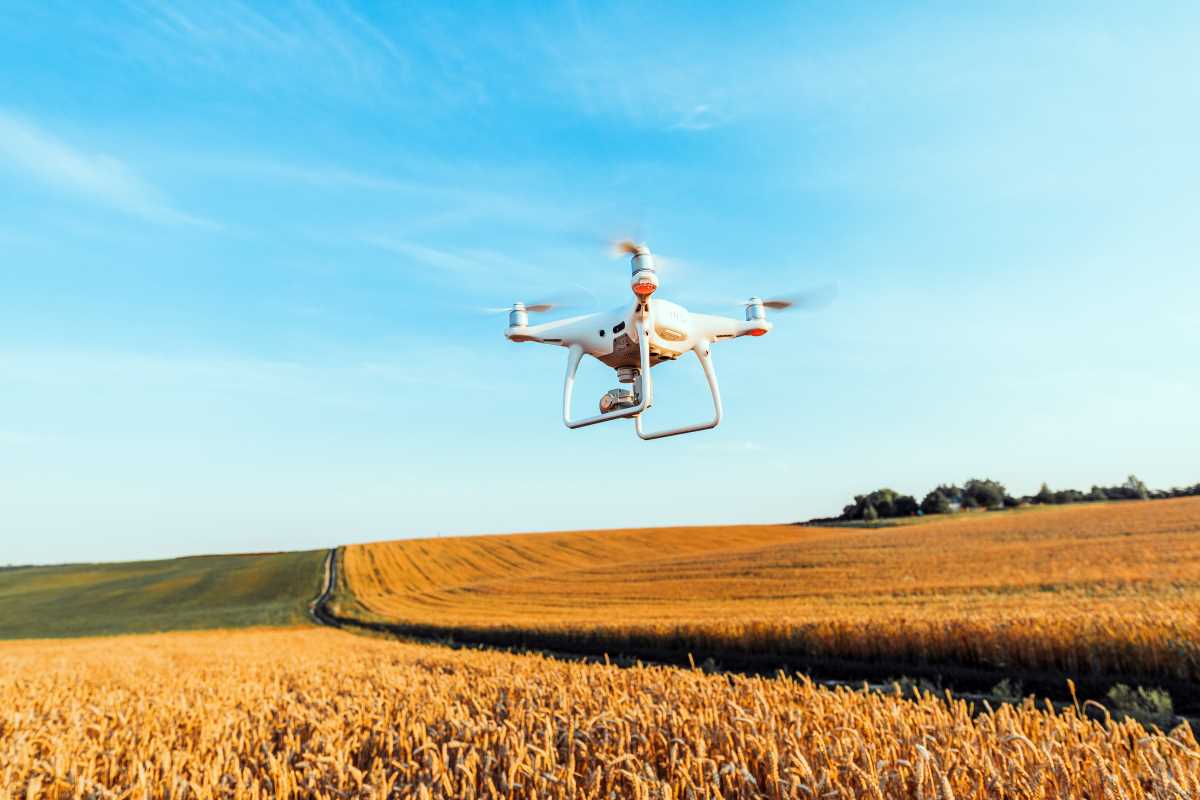From sci-fi dreams to everyday reality, drones have grown into one of the most exciting and rapidly advancing fields of technology. They’re no longer a curiosity; they’ve become indispensable across diverse industries. Drones are capturing breathtaking aerial photos, transforming agriculture through precision farming, revolutionizing delivery, and assisting in life-saving disaster relief missions. With this surge in applications, the demand for skilled professionals in the drone industry is higher than ever. If you’re ready to launch a career in this dynamic field, it’s time to discover how you can make your mark.
This guide offers a detailed roadmap to breaking into the world of drones and navigating toward a high-flying career.
Why Drones?
Before we jump into the “how,” it’s worth examining the “why.” Why are drones such a hot career choice right now? What makes this industry so exciting and viable over the long term?
For starters, drones are transforming how we work and solve problems. Whether it’s high-budget movies with stunning aerial shots, farmers monitoring crops from above, or rescue teams surveying disaster sites, drones bring speed, efficiency, and innovation. The global drone market, valued at $21.77 billion in 2022, is projected to grow with a compound annual growth rate of 16.3%, reaching $63 billion by 2028. This explosion of growth means thousands of new jobs will open in design, piloting, data analysis, and more.
More than just numbers, the drone industry offers something unique to professionals. It balances technical expertise with creativity and problem-solving, all while playing an active role in shaping the future. And let's be honest, working with drones is downright engaging. Few other careers allow you to experiment with cutting-edge technologies in such a practical and exciting way.
It’s clear the world is soaring toward a drone-driven future. If you're still with us, it’s time to explore your entry points into this industry.
Understanding the Different Careers in Drones
The beauty of the drone industry lies in its variety. There’s something for everyone, regardless of whether you’re into flying, coding, teaching, or analyzing. Here are the major roles you’ll encounter in the drone space:
1. Drone Pilots
Think of drone pilots as the heart and soul of many drone operations. They operate drones for projects like filming, surveying, inspecting, or even delivering packages. Skilled and certified pilots are in high demand to execute flights with precision and efficiency.
For example, real estate agencies hire drone pilots to capture 360-degree views of properties, while environmental scientists rely on their expertise to study wildlife without disturbing it. With e-commerce giants like Amazon experimenting with drone deliveries, drone pilots are becoming essential in logistics, too.
2. Drone Engineers and Developers
If you love tinkering with hardware or designing innovative software, drone engineering might be your calling. Engineers create and improve the drones themselves, focusing on elements like aerodynamics, battery efficiency, and payload capacity. Developers, on the other hand, work on the software side, creating algorithms for autonomous flights or programming systems for collision avoidance.
For example, Zipline, a drone company, uses cutting-edge engineering to design drones capable of delivering medical supplies to remote areas under challenging conditions.
3. Data Analysts
Many drones do more than just fly and take pictures; they collect data. Agricultural drones, for instance, gather data on soil quality, plant health, and irrigation efficiency. Similarly, drones used in construction generate maps and 3D models of work sites. Data analysts interpret this information and convert it into actionable insights.
If crunching numbers and drawing conclusions excites you, this could be a rewarding career path.
4. Drone Inspectors
Industries like energy, transportation, and manufacturing use drones to visually inspect critical infrastructure. This includes hard-to-reach spots like pipelines, wind turbines, or bridges. Drone inspectors ensure these structures remain functional and safe without the risk or cost of sending human workers to dangerous locations.
5. Educators and Trainers
If you have the patience and skill to guide others, consider training the next generation of drone professionals. Certified drone instructors teach FAA regulations, piloting techniques, and industry best practices, helping loads of aspiring individuals kickstart their careers.
No matter your strengths or interests, there’s likely a drone career that aligns with your skills.
Getting Your Foot in the Door
The drone industry may seem intimidating at first, but the barrier to entry is surprisingly low. Here’s a step-by-step plan to kick off your drone career without feeling overwhelmed.
1. Understand FAA Regulations (Or the Rules in Your Region)
The first step to working in drones is learning the laws that govern drone use. Most countries have strict aviation guidelines to keep the skies safe. If you’re in the U.S., you’ll need to understand Federal Aviation Administration (FAA) regulations.
The most important certification is the Part 107 Remote Pilot Certificate, which allows you to fly drones commercially. The test mainly covers airspace classifications, weather factors, drone operation, and flight safety. Preparing for the exam might seem daunting, but online courses from platforms like Pilot Institute or YouTube tutorials can simplify the process.
For enthusiasts outside the U.S., equivalent certifications exist. The EU, for instance, mandates getting certified under the European Union Aviation Safety Agency (EASA).
2. Get Hands-On Experience
Practical experience trumps theory in the drone world. Start by picking up a beginner-friendly drone like the DJI Mini series (they cost under $500 and are perfect for practice). Experiment with basic maneuvers like hovering in place, taking steady footage, and landing precisely.
Once you feel comfortable, experiment with low-cost projects. Offer to capture footage for local real estate agents, document community events, or create aerial visualizations of your neighborhood park. These small projects help build your confidence and expand your portfolio.
For a more formal approach, consider attending workshops like UAV Coach training or joining drone racing leagues for hands-on learning.
3. Invest in Education
While self-practice is essential, adding formal education into the mix can significantly strengthen your resume. Here are options worth exploring:
- Certificate Programs: Community colleges offer training to teach piloting, drone maintenance, mapping, and compliance.
- Online Courses: For flexibility, platforms like Coursera and EdX offer specialized training in drone design, Geographic Information Systems (GIS), or advanced piloting.
- STEM Degrees: If developing or engineering drones appeals to you, pursue an engineering discipline like robotics, aerospace, or computer science.
The skills you acquire through structured learning will pay dividends in the long run.
4. Build a Strong Portfolio
A great portfolio showcases your skills to potential clients or employers. For drone pilots, include aerial footage, still photography, or cinematic clips you’ve created. Engineers can highlight technical projects, while data analysts should showcase how they’ve turned raw drone data into actionable strategies.
Start small. Document everyday settings like parks, landscapes, or local businesses. Create a personal website or upload your work on platforms like YouTube, Instagram, or LinkedIn to increase visibility.
Industries to Explore
Drones touch nearly every corner of the economy. Here are key industries you might consider:
Film and Photography
Hollywood uses drones for cinematic shots too expensive or risky to capture using helicopters. Wedding photographers employ them to capture dreamy, romantic angles. From budget shoots to blockbuster projects, skilled drone videographers are highly sought-after.
Agriculture
Farming has gone high-tech, with drones now integral to monitoring soil conditions, mapping fields, and even applying fertilizer precisely. Innovations like these reduce costs while boosting yields, making this a critical area for drone professionals.
Construction
Builders rely on drones to perform aerial surveys, ensure workers are meeting deadlines, and inspect hard-to-reach structures. If problem-solving under pressure sounds like your kind of work, construction could be a perfect niche.
Delivery Services
Postal services, retail giants, and even small startups are racing to develop drone delivery fleets. Imagine delivering packages or food with drones! Companies like Wing, a subsidiary of Google, are piloting this vision.
Search and Rescue
Emergency responders increasingly depend on drones to locate lost hikers, survey disaster zones, or deliver medicine to isolated areas in record time. Working in search and rescue could make for a deeply fulfilling career.
Build Connections
Networking is critical in any career, and the drone industry is no exception. Making the right connections can open up unexpected opportunities.
- Join Online Communities: Platforms such as Reddit (like r/drones) or Facebook Groups for drone pilots are full of strategies, advice, and job postings.
- Attend Events: Drone racing tournaments, expos like CES, or niche conferences can help you meet industry leaders and recruiters in person.
- Connect on LinkedIn: Following relevant organizations and building relationships with professionals can open doors, sometimes where you least expect them.
Remember, networking isn’t just beneficial for landing jobs. It’s also where you’ll find inspiration and stay updated on industry trends.
Keep Learning
Technology evolves quickly, especially in cutting-edge fields like drones. Staying competitive means being adaptable. Devote time to learning new piloting techniques, regulatory updates, or advancements in drone AI.
For instance, drones equipped with LiDAR technology are reshaping industries like forestry and archaeology. Keeping up with such innovations could set you apart from the competition.
Breaking into the drone industry might seem daunting but is entirely doable with determination and curiosity. The field is growing rapidly, creating roles for enthusiasts of all skill levels. Whether you’re helping farmers revolutionize agriculture or filming breathtaking scenes for Hollywood, drones offer countless opportunities to make a difference.
Your high-flying career can start with something as simple as mastering flight on a small drone. From there, every step will take you closer to skies filled with opportunity. Explore, adapt, and keep moving forward. The sky, quite literally, is the limit!
 (Image via
(Image via





